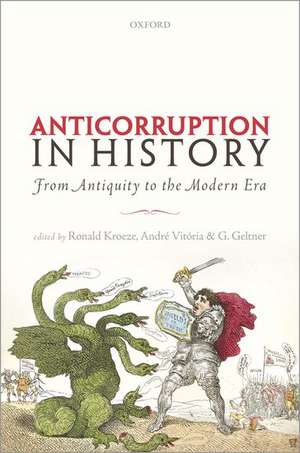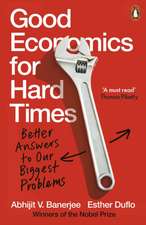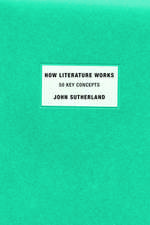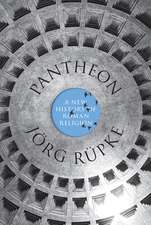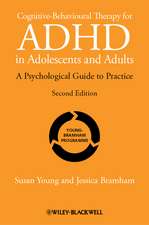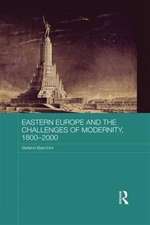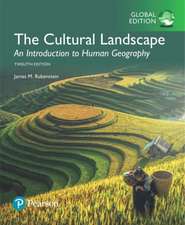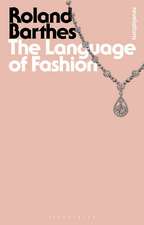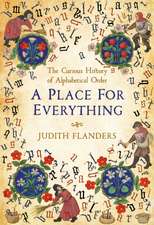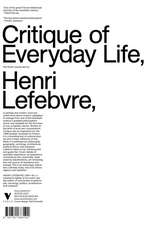Anticorruption in History: From Antiquity to the Modern Era
Editat de Ronald Kroeze, André Vitória, Guy Geltneren Limba Engleză Hardback – 6 dec 2017
Anticorruption in History is the first major collection of individual and comparative case studies on how societies and polities in and beyond European history defined legitimate power in terms of fighting corruption and designed specific mechanisms to pursue that agenda.
| Toate formatele și edițiile | Preț | Express |
|---|---|---|
| Paperback (1) | 242.33 lei 10-16 zile | |
| OUP OXFORD – 20 feb 2020 | 242.33 lei 10-16 zile | |
| Hardback (1) | 750.55 lei 31-37 zile | |
| OUP OXFORD – 6 dec 2017 | 750.55 lei 31-37 zile |
Preț: 750.55 lei
Preț vechi: 1010.48 lei
-26% Nou
Puncte Express: 1126
Preț estimativ în valută:
143.62€ • 150.33$ • 119.54£
143.62€ • 150.33$ • 119.54£
Carte tipărită la comandă
Livrare economică 21-27 martie
Preluare comenzi: 021 569.72.76
Specificații
ISBN-13: 9780198809975
ISBN-10: 0198809972
Pagini: 464
Dimensiuni: 164 x 242 x 34 mm
Greutate: 0.85 kg
Editura: OUP OXFORD
Colecția OUP Oxford
Locul publicării:Oxford, United Kingdom
ISBN-10: 0198809972
Pagini: 464
Dimensiuni: 164 x 242 x 34 mm
Greutate: 0.85 kg
Editura: OUP OXFORD
Colecția OUP Oxford
Locul publicării:Oxford, United Kingdom
Recenzii
a cohesive and stimulating investigation of the shifting perceptions of corruption in moral, civic and political terms and the strategies and alternative modes of public behaviour that have been attempted to deal with this ongoing problem of modern societies of all political hues.
The insights are many and readers will no doubt find their own amid this rich array of case studies; but arguably the greatest service performed by this book is to bring some much needed analytical pressure to bear on the divide between the modern, post-1800 era and that which went before. This is also where the book will be of most interest to historians and scholars of liberalism, which, however we might define it, is distinguished by a commitment to open and accountable government and the enactment of public office in a disinterested fashion, above the fray of financial, personal and political interests-at least in theory.
the merit of a work that has managed to gather such a large number of specialists working on such different periods in history. All the more so when the result is a fresh perspective on the study of corruption.
the analytical and conceptual rigour of the volume's chapters is high. This book provides a profound and rich historical analysis of a topical problem.
offers unique detail and insights ... Highly recommended.
The insights are many and readers will no doubt find their own amid this rich array of case studies; but arguably the greatest service performed by this book is to bring some much needed analytical pressure to bear on the divide between the modern, post-1800 era and that which went before. This is also where the book will be of most interest to historians and scholars of liberalism, which, however we might define it, is distinguished by a commitment to open and accountable government and the enactment of public office in a disinterested fashion, above the fray of financial, personal and political interests-at least in theory.
the merit of a work that has managed to gather such a large number of specialists working on such different periods in history. All the more so when the result is a fresh perspective on the study of corruption.
the analytical and conceptual rigour of the volume's chapters is high. This book provides a profound and rich historical analysis of a topical problem.
offers unique detail and insights ... Highly recommended.
Notă biografică
Ronald Kroeze is Assistant Professor in History at the Free University of Amsterdam and was a Postdoctoral Researcher and member of Anticorrp's Work Package 2. He has published extensively on the history of corruption.André Vitória is a Postdoctoral Researcher and a member of Anticorrp's Work Package 2. His PhD research focused on the impact of the Romano-canonical ius commune on the administration of justice, litigation and the relationship between different jurisdictions and political powers in medieval Portugal. He specializes in legal and political history in the high and late Middle Ages and is particularly interested in the intersection of juristic and publicistic thought and legal and political practice.Guy Geltner is Professor of Medieval History and Director of the Center for Medieval and Renaissance Studies at the University of Amsterdam. He has published widely on the history of Italian city-states in the later Middle Ages, especially on urban dis/order, as reflected in municipal approaches to punishment, dispute settlement, and public health.
